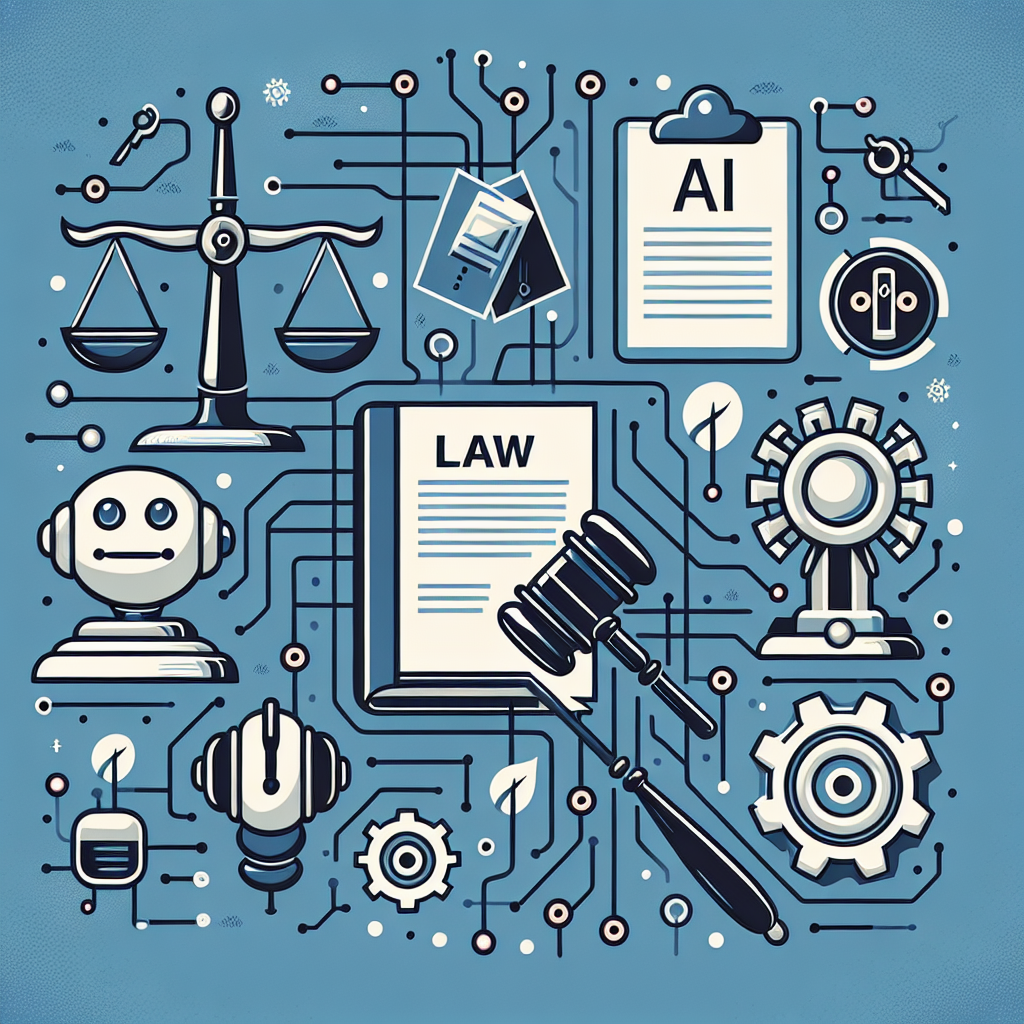In the legal industry, project management and task automation are critical components of ensuring efficiency and productivity. With the increasing complexity of legal matters and the growing volume of data and information involved, leveraging artificial intelligence (AI) can greatly enhance legal project management and automate routine tasks, allowing legal professionals to focus on higher-value work.
AI in Legal Project Management
AI can play a significant role in legal project management by helping streamline processes, improve decision-making, and enhance collaboration among team members. Here are some ways AI can be leveraged for legal project management:
1. Predictive Analytics: AI can analyze historical data and predict outcomes based on patterns and trends, helping legal professionals make informed decisions and develop strategies for their projects. For example, AI can predict the likelihood of success in a case, recommend settlement options, or estimate the costs and timelines of a legal project.
2. Document Management: AI-powered tools can automate the process of organizing, categorizing, and retrieving legal documents, saving time and reducing the risk of errors. AI can also assist in document review and analysis, identifying key information and relevant passages more efficiently than manual methods.
3. Task Management: AI can help legal teams track tasks, deadlines, and milestones, ensuring that projects stay on schedule and on budget. AI-powered task management tools can prioritize tasks, allocate resources, and send reminders to team members, improving overall project efficiency.
4. Workflow Automation: AI can automate repetitive tasks such as data entry, document generation, and email communication, freeing up legal professionals to focus on more complex and strategic work. Workflow automation can also help standardize processes and ensure consistency across projects.
5. Resource Allocation: AI can analyze workloads, skill sets, and availability of team members to optimize resource allocation and staffing for legal projects. AI can recommend the best team members for specific tasks based on their expertise and availability, improving project outcomes and efficiency.
6. Risk Management: AI can assess risks and identify potential issues in legal projects, allowing legal professionals to proactively address them before they escalate. AI can analyze data from past projects, regulatory requirements, and market trends to identify risks and provide recommendations for mitigation strategies.
7. Collaboration Tools: AI-powered collaboration tools can facilitate communication and knowledge sharing among team members, enabling seamless collaboration on legal projects. AI can suggest relevant documents, resources, and experts to team members, improving decision-making and project outcomes.
8. Performance Monitoring: AI can track key performance indicators (KPIs) and metrics for legal projects, providing real-time insights into project progress, budget utilization, and team performance. AI can generate reports and dashboards to visualize project data and trends, enabling legal professionals to make data-driven decisions.
FAQs
Q: How can AI improve decision-making in legal project management?
A: AI can analyze data, identify patterns, and predict outcomes to help legal professionals make informed decisions and develop strategies for their projects. AI can provide recommendations based on historical data and trends, enabling more effective decision-making.
Q: Can AI automate document management in legal projects?
A: Yes, AI-powered tools can automate the process of organizing, categorizing, and retrieving legal documents, saving time and reducing the risk of errors. AI can also assist in document review and analysis, identifying key information more efficiently than manual methods.
Q: How can AI optimize resource allocation for legal projects?
A: AI can analyze workloads, skill sets, and availability of team members to optimize resource allocation and staffing for legal projects. AI can recommend the best team members for specific tasks based on their expertise and availability, improving project outcomes and efficiency.
Q: What are the benefits of using AI for legal project management?
A: Some benefits of leveraging AI for legal project management include improved decision-making, streamlined processes, enhanced collaboration, reduced costs, and increased efficiency. AI can help legal professionals focus on higher-value work and deliver better outcomes for their clients.
Q: How can AI assist in risk management for legal projects?
A: AI can assess risks, identify potential issues, and provide recommendations for mitigation strategies in legal projects. AI can analyze data from past projects, regulatory requirements, and market trends to identify risks and help legal professionals proactively address them.
In conclusion, leveraging AI for legal project management and task automation can greatly enhance efficiency, productivity, and decision-making in the legal industry. AI-powered tools can streamline processes, automate routine tasks, and improve collaboration among team members, enabling legal professionals to focus on higher-value work and deliver better outcomes for their clients. By embracing AI technology, legal professionals can stay ahead of the curve and drive innovation in the legal industry.

